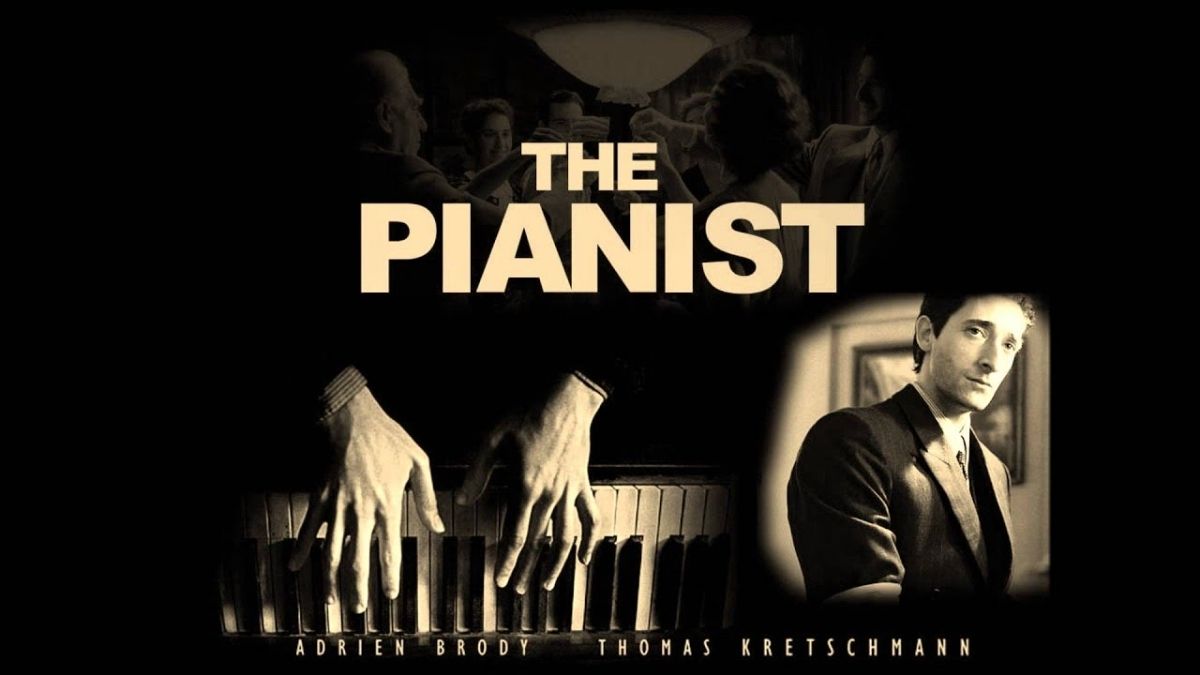
The Pianist is a critically acclaimed movie that captivated audiences worldwide with its gripping storyline and exceptional performances. Directed by Roman Polanski and released in 2002, this film is based on the true story of W?adys?aw Szpilman, a Polish-Jewish pianist who lived through the harrowing events of the Holocaust. As one of the most moving and powerful films ever made about this dark chapter in history, The Pianist received widespread praise from both critics and viewers alike. In this article, we will delve into 50 fascinating facts about The Pianist, shedding light on the making of the film, the hardships faced by the cast and crew, and the impact it had on the world of cinema. So, sit back, relax, and prepare to uncover the incredible details behind this cinematic masterpiece.
Key Takeaways:
- The Pianist is a powerful movie based on a true story, highlighting the resilience of a Holocaust survivor and the importance of never forgetting history’s lessons.
- Through emotional storytelling and authentic portrayals, The Pianist raises awareness about the Holocaust and celebrates the human spirit’s capacity for survival.
Oscar-Winning Performance
The Pianist, directed by Roman Polanski, won three Oscars in 2003, including Best Director, Best Adapted Screenplay, and Best Actor for Adrien Brody.
Based on a True Story
The movie is based on the autobiography of W?adys?aw Szpilman, a Polish-Jewish pianist and composer who survived World War II in Warsaw.
Historical Accuracy
The film strives to be historically accurate, depicting the events of the Holocaust and the Nazi occupation of Warsaw with meticulous attention to detail.
Steven Spielberg’s Involvement
Steven Spielberg served as an executive producer for The Pianist, lending his support to the project due to the personal connection he felt to the story.
Adrien Brody’s Dedication
Adrien Brody prepared for his role by learning to play the piano. He practiced for months and even lost 30 pounds to accurately portray the physical and emotional transformation of Szpilman.
Emotional Intensity
The movie immerses the audience in the emotional turmoil of Szpilman’s journey, capturing the fear, desperation, and hope that he experiences during the war.
Authentic Locations
The filmmakers went to great lengths to shoot on location in Warsaw, using many of the actual sites where Szpilman’s story unfolded.
Critical Acclaim
The Pianist received widespread critical acclaim, with praise for its direction, performances, and the poignant portrayal of survival during one of history’s darkest periods.
Cannes Film Festival Recognition
The movie premiered at the Cannes Film Festival in 2002, where it was met with a standing ovation and went on to win the Palme d’Or, the festival’s highest honor.
A Powerful Musical Score
The film incorporates classical music, particularly compositions by Frédéric Chopin, who holds great significance in the life of W?adys?aw Szpilman.
Polanski’s Personal Connection
As a survivor of the Holocaust himself, Roman Polanski brings a personal understanding and connection to the subject matter, adding depth and authenticity to the film.
Language Diversity
The Pianist features a multilingual cast, using Polish, German, and English languages to reflect the cultural and linguistic landscape of wartime Poland.
Humanizing the Perpetrators
The movie humanizes some German soldiers, showing the complexities of individual choices and the effects of societal pressure during times of war.
Controversial Casting
Adrien Brody’s casting was met with backlash initially, as some people felt that a Jewish actor should have been chosen to portray Szpilman.
Inspiring Hope
Despite the harrowing portrayal of the Holocaust, The Pianist emphasizes the resilience and indomitable human spirit, inspiring hope even in the darkest of times.
Accolades and Awards
In addition to the Academy Awards, The Pianist received numerous accolades and nominations from prestigious award ceremonies worldwide.
Critically Important Film
The Pianist is considered an essential viewing for its historical significance, shedding light on the horrors of the Holocaust and the strength of those who survived.
Intimate Character Study
The film delves deeply into the psychological journey of W?adys?aw Szpilman, exploring his fears, hopes, and inner struggles amidst the chaos of war.
Preservation of Memory
By adapting Szpilman’s memoirs into a film, The Pianist contributes to preserving the collective memory of the Holocaust and the stories of its survivors.
Poignant Cinematography
The movie’s cinematography captures the contrast between the beauty of the music Szpilman creates and the stark reality of his surroundings.
Unforgettable Performances
Adrien Brody’s performance as W?adys?aw Szpilman is hailed as one of the most memorable and emotionally powerful portrayals in cinematic history.
Collaboration with Survivors
The filmmakers collaborated closely with survivors and their families, ensuring that the movie honored their experiences and paid tribute to their resilience.
Box Office Success
Despite its intense subject matter, The Pianist found commercial success, proving that audiences were drawn to its powerful storytelling.
Educational Value
The Pianist is often used as an educational tool to teach students about the Holocaust, providing a personal and gripping perspective on history.
Long-lasting Impact
The film’s impact continues to resonate, reminding viewers of the atrocities committed during the Holocaust and the importance of remembering and learning from the past.
International Distribution
The Pianist was released worldwide, reaching audiences across different countries and cultures, spreading awareness about the Holocaust on a global scale.
A Story of Survival
Above all, The Pianist is a testament to the strength of the human spirit and the will to survive against unimaginable odds.
Great Attention to Detail
The film’s production design, costumes, and makeup were meticulously crafted to recreate the historical period and immerse the audience in the authentic experience.
Emotional Impact
Viewers are taken on an emotional roller coaster, experiencing empathy, sadness, and ultimately, a sense of hope as they witness Szpilman’s incredible resilience.
Historical Documentation
Through its storytelling, The Pianist contributes to the documentation and remembrance of the Holocaust, ensuring that future generations are aware of this dark chapter in history.
A Masterpiece Among Holocaust Films
The Pianist is often considered as one of the most powerful and moving films that depict the horrors of the Holocaust with authenticity and respect.
Perseverance Against All Odds
The film portrays Szpilman’s unwavering determination to survive, showcasing the strength that can be found within even in the most challenging circumstances.
The Power of Music
The Pianist highlights the transcendent power of music, offering solace and a glimmer of hope amidst the chaos and destruction of war.
Collaboration with Historical Experts
The filmmakers worked closely with historians and experts in the field of Holocaust studies to ensure the accuracy and authenticity of the film’s portrayal.
Emotional Soundtrack
The film’s musical score, composed by Wojciech Kilar, adds to the emotional depth of the storytelling, enhancing the impact of the narrative.
Courageous Acts of Humanity
The Pianist highlights the acts of kindness and humanity shown by some individuals during the war, reminding us of the capacity for good even in the darkest times.
Global Recognition
The film garnered praise and recognition not only in the Western world but also in countries where awareness of the Holocaust was relatively limited.
A Bond Between Strangers
The film explores the bond that forms between Szpilman and a German officer, depicting the complexities of human relationships in times of conflict.
Realism in Portrayals
The actors underwent extensive research and preparation to embody their characters, contributing to the authenticity and realism of the performances.
A Story of Loss and Resilience
The Pianist mourns the loss of countless lives during the Holocaust while paying tribute to the strength and resilience of those who survived.
Director’s Personal Reflection
Roman Polanski, as the director, adds a personal reflection to the film, drawing from his own experiences and understanding of the lasting impact of the Holocaust.
Raising Awareness
Through its powerful storytelling, The Pianist raises awareness about the Holocaust and encourages dialogue about the importance of remembrance and tolerance.
Historical Testimony
As an adaptation of W?adys?aw Szpilman’s memoir, The Pianist serves as a crucial historical testimony, preserving the experiences of one individual amid the larger narrative of the Holocaust.
Reflecting on Injustice
The film invites viewers to reflect on the injustices of the past and to confront the prejudice and discrimination that continue to persist in society today.
Emphasizing the Human Connection
The Pianist underscores the importance of human connections and compassion, illustrating the profound impact that even small acts of kindness can have during times of immense suffering.
A Celebration of Artistic Expression
The film celebrates the power of artistic expression as a means of preserving humanity and providing solace in the face of overwhelming adversity.
Sensitively Handling Difficult Topics
The Pianist navigates the sensitive subject matter of the Holocaust with respect and care, providing a platform for remembrance and understanding.
A Message of Hope
Amidst the horrors depicted in the film, The Pianist ultimately carries a message of hope, demonstrating the indomitable spirit of those who refuse to be silenced.
Cultural Impact
The Pianist has had a significant cultural impact, influencing subsequent Holocaust films and contributing to the broader discourse on memory and commemoration.
Legacy of The Pianist
The film’s legacy endures as a testament to the human capacity for survival, the power of storytelling, and the importance of never forgetting the lessons of history.
Conclusion
In conclusion, “The Pianist” is a remarkable film that tells the powerful and poignant story of a talented pianist’s struggle for survival during the Holocaust. With its gripping narrative, superb performances, and masterful direction by Roman Polanski, the movie stands as a testament to the resilience of the human spirit in the face of unimaginable adversity. From its compelling depiction of the horrors of war to its exploration of themes such as hope, resilience, and the power of music, “The Pianist” remains a cinematic masterpiece that continues to captivate audiences worldwide.
FAQs
1. Is “The Pianist” based on a true story?
Yes, “The Pianist” is based on the true story of W?adys?aw Szpilman, a Polish-Jewish pianist who survived the Holocaust in Warsaw during World War II.2. Who directed “The Pianist”?
The Pianist” was directed by Roman Polanski, a renowned Polish-French filmmaker known for his distinctive style and his ability to create powerful and emotionally-charged films.3. Who played the lead role in “The Pianist”?
The lead role of W?adys?aw Szpilman was played by actor Adrien Brody, who delivered a stunning and nuanced performance that earned him critical acclaim and several awards, including an Academy Award for Best Actor.4. When was “The Pianist” released?
The Pianist” was released in 2002, receiving widespread acclaim from both critics and audiences alike for its harrowing depiction of the Holocaust and its powerful portrayal of human resilience.5. Did “The Pianist” win any awards?
Yes, “The Pianist” received numerous accolades, including three Academy Awards – Best Director for Roman Polanski, Best Adapted Screenplay, and Best Actor for Adrien Brody. It also won the prestigious Palme d’Or at the Cannes Film Festival.6. Is “The Pianist” primarily in English or Polish?
“The Pianist” is primarily in Polish, as it is set in Warsaw, Poland during World War II. However, there are some scenes in the film that are in German and Russian.7. What is the running time of “The Pianist”?
The running time of “The Pianist” is approximately 2 hours and 30 minutes.8. Did “The Pianist” have a significant impact on Holocaust cinema?
Yes, “The Pianist” is widely regarded as one of the most important films in Holocaust cinema. Its raw and realistic portrayal of the Holocaust, combined with its powerful performances and gripping storytelling, has had a profound impact on audiences and continues to be studied and discussed in academic and cinematic circles.
The Pianist is a testament to the indomitable human spirit, offering a poignant glimpse into the life of a talented musician who refused to let the horrors of war extinguish his passion. As you reflect on the profound impact of this cinematic masterpiece, consider exploring other fascinating topics that delve into the depths of human resilience and the complexities of history. From the awe-inspiring tales of those who defied the odds to survive unimaginable circumstances to the controversial life and career of Roman Polanski, the director behind this powerful film, there's no shortage of captivating stories waiting to be discovered. And for those seeking to unravel the intricacies of World War II, a wealth of eye-opening facts and insights await.
Was this page helpful?
Our commitment to delivering trustworthy and engaging content is at the heart of what we do. Each fact on our site is contributed by real users like you, bringing a wealth of diverse insights and information. To ensure the highest standards of accuracy and reliability, our dedicated editors meticulously review each submission. This process guarantees that the facts we share are not only fascinating but also credible. Trust in our commitment to quality and authenticity as you explore and learn with us.


